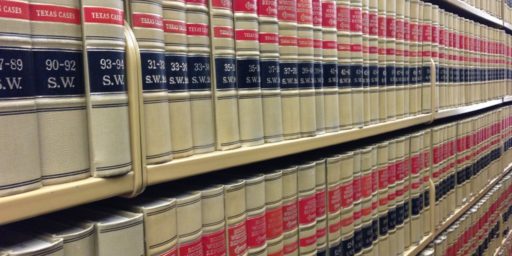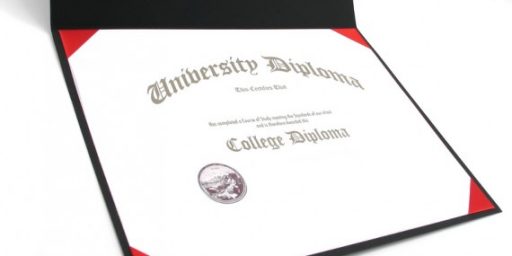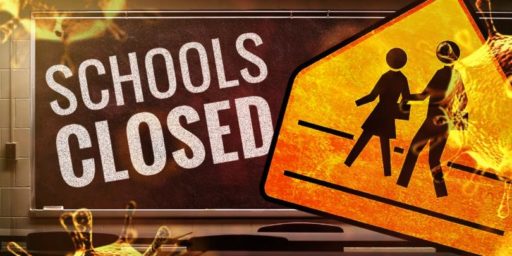What’s a University, Anyway?
 The juxtaposition of two stories this morning both amused and bemused me.
The juxtaposition of two stories this morning both amused and bemused me.
First, the state of New York has forced Donald Trump to change the name of Trump University on account of it not being, you know, a university.
In a strongly worded letter obtained by the Daily News, the state Education Department slammed the tycoon for calling the cyber-school a university and demanded he stop using the term. “Use of the word ‘university’ by your corporation is misleading and violates New York Education Law and the Rules of the Board of Regents,” wrote Deputy Commissioner for Higher Education Joseph Frey.
Adding to Trump’s woes, the for-profit firm that promises to teach wanna-be billionaires the secrets of deal-making was hit with a D-minus rating by the Better Business Bureau in January.
Trump seldom ducks a fight, but “University” co-founder and President Michael Sexton sounded ready to throw in the cap-and-gown last night. “We’ll cooperate with them fully, and at the end of the day, if we’re in violation of any state regulation, we will change our name to Trump Education,” he said.
Founded in 2005, Trump U’s Web site boasts of an “Ivy League-quality curriculum” and “world-class faculty.” Trump is described as an “archetypal businessman, deal-maker without peer and ardent philanthropist.”
The school, which doesn’t confer college credits or degrees, charges $995 for some courses.
Concurrently, however, New York is joining several other states in allowing institutions other than colleges of education to confer graduate degrees in education.
Not long ago education schools had a virtual monopoly on the teaching profession. They dictated how and when people became teachers by offering coursework, arranging apprenticeships and granting master’s degrees. But now those schools are feeling under siege. Officials in Washington, D.C., and New York State, where some of the best-known education schools are located, have stepped up criticisms that the schools are still too focused on theory and not enough on the craft of effective teaching.
In an ever-tightening job market, their graduates are competing with the products of alternative programs like Teach for America, which puts recent college graduates into teaching jobs without previous teaching experience or education coursework.
And this week, the New York State Board of Regents could deliver the biggest blow. It will vote on whether to greatly expand the role of the alternative organizations by allowing them to create their own master’s degree programs. At the extreme, the proposal could make education schools extraneous.
“In a lot of respects, what the Regents have done is the ghost of Christmas future,” said Arthur Levine, a former president of Teachers College at Columbia University and now president of the Woodrow Wilson National Fellowship Foundation. “Education schools are on the verge of losing their franchise.”
Perhaps Trump Education can get in on the action.






What about the University of Phoenix?
After this story, one wonders if Louisiana State University at Baton Rouge deserves the title:
Short version: “Students” whine her exams are too hard, she’s fired midterm from teaching course. Jesus.
Presumably, Hamburger University has escaped without criticism due to its affiliation with the ACE. Sounds like a turf battle to me.
I seem to remember a post here some few days ago about whether Education degrees were suffering from grade inflation and whether they were worthwhile or not.
I would say this is direct proof of the ability of the system to self correct and against the programs.